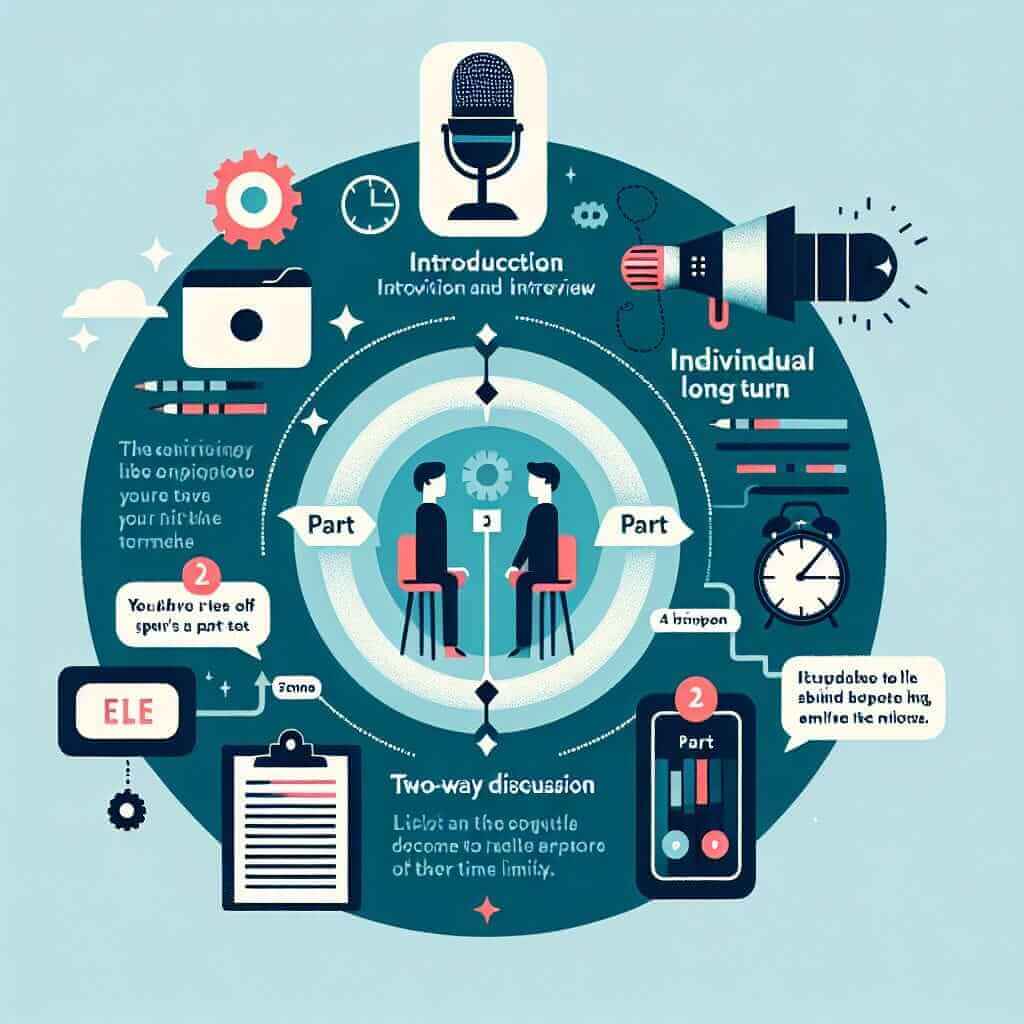Many IELTS test-takers find themselves excelling in the Reading section while struggling to achieve a similar score in Speaking. This discrepancy can be frustrating, but understanding the reasons behind it is the first step to bridging the gap. As an IELTS instructor with over 20 years of experience, I’ve encountered this situation countless times and helped my students overcome this hurdle.
Understanding the Discrepancy
While both sections assess English language proficiency, they demand different skills:
IELTS Reading:
- Passive skills: Reading focuses primarily on comprehension – understanding vocabulary in context, identifying main ideas, and following arguments.
- Time management: You have a set time limit to read passages and answer questions, requiring efficient skimming and scanning skills.
IELTS Speaking:
- Active skills: Speaking demands fluency, pronunciation, grammatical accuracy, and the ability to express your ideas coherently in real-time.
- Interactive: It involves a face-to-face conversation with an examiner, requiring confidence, spontaneity, and the ability to handle unexpected questions or prompts.
Therefore, a high Reading score doesn’t automatically translate to a high Speaking score. Let’s explore the common reasons for this difference:
Common Reasons for the Gap
1. Lack of Speaking Practice
The most common reason for this disparity is simply insufficient speaking practice. Reading extensively can build a strong vocabulary and improve comprehension, but it doesn’t offer the same practical experience as engaging in conversations.
2. Fear of Making Mistakes
Many learners hesitate to speak English due to the fear of making grammatical errors or mispronouncing words. This anxiety can hinder fluency and affect their overall performance.
3. Limited Vocabulary and Grammatical Range
While reading exposes you to a wide range of vocabulary and grammar, actively using them in spoken English requires a different skillset.
4. Lack of Familiarity with the Speaking Test Format
Not being familiar with the IELTS Speaking test format, its different parts, and the assessment criteria can also lead to a lower score, even with good English proficiency.

Bridging the Gap: Tips to Improve Your Speaking Score
1. Prioritize Speaking Practice
- Speak, speak, speak! Engage in regular English conversations with friends, language partners, or online tutors.
- Record yourself speaking: This helps identify areas for improvement in pronunciation, fluency, and coherence.
- Practice common IELTS Speaking topics: Familiarize yourself with typical themes and practice expressing your opinions clearly and concisely.
2. Expand Your Vocabulary and Grammar
- Don’t just read, use new words and grammar in your speaking practice.
- Learn vocabulary and grammar in context: This will help you remember and apply them more effectively.
- Focus on idiomatic language: Using natural expressions will make your speaking sound more fluent and authentic.
3. Work on Fluency and Pronunciation
- Practice speaking at a natural pace: Don’t worry about speaking too quickly – focus on clear articulation and intonation.
- Listen to native speakers: Pay attention to their rhythm, stress, and intonation patterns.
- Use pronunciation resources: Online dictionaries and pronunciation guides can help you improve your pronunciation.
4. Familiarize Yourself with the Test Format
- Understand the assessment criteria: This will give you a clear idea of what examiners look for in your performance.
- Do practice tests: Simulate the real test environment and get feedback on your performance.
Conclusion
While it can be disheartening to see a significant difference between your IELTS Reading and Speaking scores, it’s important to remember that this is a common challenge with a solution. By understanding the reasons behind the discrepancy and dedicating focused effort towards improving your speaking skills, you can bridge the gap and achieve your desired IELTS score. Remember, consistent practice and the right approach are key to success in the IELTS Speaking test.